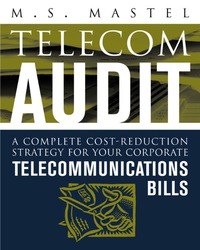Answered step by step
Verified Expert Solution
Question
1 Approved Answer
Hank started a new business, Hank's Donut World ( HW for short ) , in June of last year. He has requested your advice on
Hank started a new business, Hank's Donut World HW for short in June of last year. He has requested your advice on the following specific tax matters associated with HWs first year of operations. Hank has estimated HWs income for the first year as follows:
Revenue:
Donut sales $
Catering revenues $
Expenditures:
Donut supplies $
Catering expense
Salaries to shop employees
Rent expense
Accident insurance premiums
Other business expenditures
Net Income $
HW operates as a sole proprietorship, and Hank reports on a calendar year. Hank uses the cash method of accounting and plans to do the same with HW HW has no inventory of donuts because unsold donuts are not salable HW does not purchase donut supplies on credit, nor does it generally make sales on credit. Hank has provided the following details for specific firstyear transactions.
A small minority of HW clients complained about the catering service. To mitigate these complaints, Hank's policy is to refund dissatisfied clients percent of the catering fee. By the end of the first year, only two HW clients had complained but had not yet been paid refunds. The expected refunds amount to $ and Hank reduced the reported catering fees for the first year to reflect the expected refund.
In the first year, HW received a $ payment from a client for catering a monthly breakfast for consecutive months beginning in December. Because the payment didn't relate to last year, Hank excluded the entire amount when he calculated catering revenues.
In July, HW paid $ to ADMAN Company for an advertising campaign to distribute fliers advertising HWs catering service. Unfortunately, this campaign violated a city code restricting advertising by fliers, and the city fined HW $ for the violation. HW paid the fine, and Hank included the fine and the cost of the campaign in "other business" expenditures.
In July, HW also paid $ for a month insurance policy that covers HW for accidents and casualties beginning on August of the first year. Hank deducted the entire $ as accident insurance premiums.
In May of the first year, Hank signed a contract to lease the HW donut shop for months. In conjunction with the contract, Hank paid $ as a damage deposit and $ for rent $ per month Hank explained that the damage deposit was refundable at the end of the lease. At this time, Hank also paid $ to lease kitchen equipment for months $ per month Both leases began on June of the first year. In his estimate, Hank deducted these amounts $ in total as rent expense.
Hank signed a contract hiring WEGO Catering to help cater breakfasts. At yearend, WEGO asked Hank to hold the last catering payment for the year, $ until after January apparently because WEGO didn't want to report the income on its tax return The last check was delivered to WEGO in January after the end of the first year. However, because the payment related to the first year of operations, Hank included the $ in last year's catering expense.
Hank believes that the key to the success of HW has been hiring Jimbo Jones to supervise the donut production and manage the shop. Because Jimbo is such an important employee, HW purchased a "keyemployee" termlife insurance policy on his life. HW paid a $ premium for this policy, and it will pay HW a $ death benefit if Jimbo passes away any time during the next months. The term of the policy began on September of last year, and this payment was included in other business expenditures.
In the first year, HW catered a large breakfast event to celebrate the city's anniversary. The city agreed to pay $ for the event, but Hank forgot to notify the city of the outstanding bill until January of this year. When he mailed the bill in January, Hank decided to discount the charge to $ On the bill, Hank thanked the mayor and the city council for their patronage and asked them to "send a little more business our way." This bill is not reflected in Hank's estimate of HWs income for the first year of operations. b Determine the taxable income that HW will generate if Hank chooses to account for the business under the accrual method.
Note: Do not round intermediate calculations.
Step by Step Solution
There are 3 Steps involved in it
Step: 1

Get Instant Access to Expert-Tailored Solutions
See step-by-step solutions with expert insights and AI powered tools for academic success
Step: 2

Step: 3

Ace Your Homework with AI
Get the answers you need in no time with our AI-driven, step-by-step assistance
Get Started


